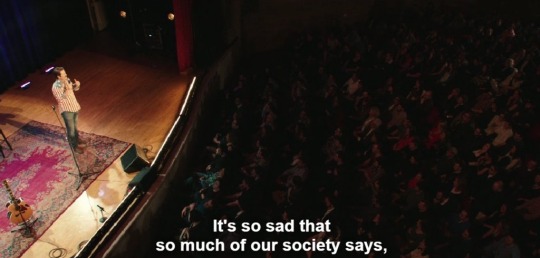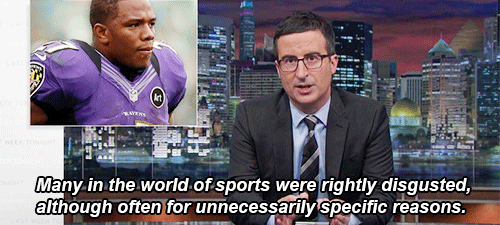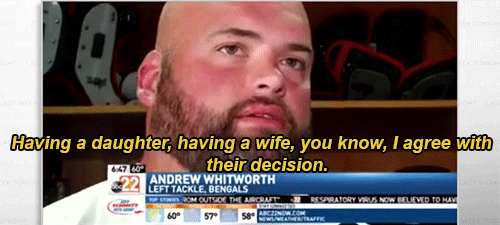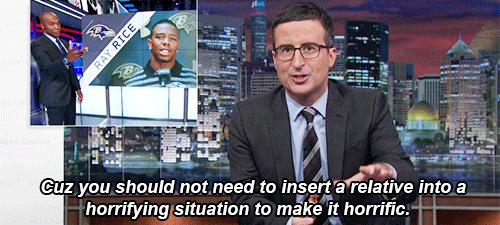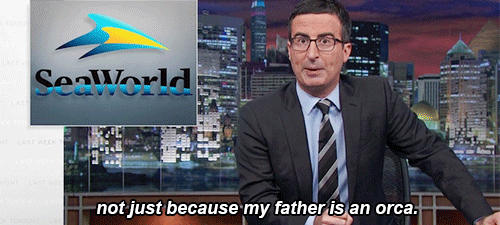Text
Opinions and beliefs are often touted as all being equal. This is simply not true. Opinions can be better or worse than others. You base it off of the evidence. If you don’t then your opinion is baseless and should be subject to scrutiny.
Some people may mention the basal assumptions that everyone must make (The universe exists, you can learn something about the universe, and models or reality with predictive capabilities are better than those that do not have predictive capabilities.). Those opinions are generally accepted due to occum’s razor. Those are the fewest amount of assumptions that you need to make. You would need to demonstrate that your other assumption is justified.
0 notes
Photo

Endless Questions
Suggested Reading
Mind If I Order the Cheeseburger?: And Other Questions People Ask Vegans
By Sherry F. Colb
134 notes
·
View notes
Text
Logic of meat eaters
Meat eater: Well everyone is entitled to believe what they want to believe.
me: Sure, as long as it doesn't cause harm
Meat eater: Yeah, and animals don't feel pain
Me: Sure they do, they have a nervous system and we know what pain receptors look like. They clearly feel pain.
Meat eater: But not like us. The pain they feel is much less, so it is ok.
Me: So we can eat patients with CIP? I mean they don't feel pain like most other humans.
Meat eater: Well no, they are human, and that would be cannibalism.
Me: What is wrong with cannibalism from your stand point?
Meat eater: Well you are eating your own species. This reduces trust among your own species, given we are a social species, we need to build up trust in order to interact positively.
Me: So you don't eat humans so you can build up trust? If people would trust you if you ate humans, you would eat humans?
Meat eater: Well no.
Me: Why not?
Meat eater: Because it is gross.
Me: What makes eating other species flesh less gross?
Meat eater: They aren't human.
Me: How do you know humans taste gross?
Meat eater: I don't. I just couldn't bring myself to eat another human being.
Me: Why not?
Meat eater: Because, I couldn't live with myself for killing them.
Me: What about if someone else killed them and you just bought the parts you wanted to eat?
Meat eater: Well, no. I would be supporting murder.
Me: So why do you eat other animals?
Meat eater: Because that isn't murder.
Me: Legally it is not. But legally dictators never murdered anyone then. Shouldn't we hold people to higher standards of ethics, rather than arbitrary ones.
Meat eater: Yes, but what is ethically wrong with eating another animal? They aren't human.
Me: You are right, they are not human. So what? Why is that your determining factor of what we can and cannot eat?
Meat eater: Because we are the top of the food chain. We have a right to eat them.
Me: You realize that the food chain is descriptive and not proscriptive. The fact that we have the ability to do something does not give us the right to do it necessarily.
Meat eater: Right. The only time it is prohibited is if it cause harm to another human.
Me: Why do you limit it to humans? You still haven't given a valid reason for this.
Meat eater: Because I am a human.
Me: You are also an animal, a living thing, a combination of atoms. What made you choose human?
Meat eater: That is the most specific thing that I am.
Me: No. You are a white, european male that is heterosexual, and identifies with their biological sex.
Meat eater: So?
Me: Well that means that, by your logic, you should be able to eat anyone who is not like you. This means that you would eat humans.
Meat eater: No, because I stop at the species of humans.
Me: Why?
Meat eater: Because I am one.
Me: But I already addressed this. You haven't given a valid reason for stoping at your species.
Meat eater: Because anything less would be too inclusive and more would be too exclusive.
Me: So convenience?
Meat eater: Well no. I mean, come on. It is unethical to kill a human.
Me: Why?
Meat eater: Because of what I said in the beginning about our species being a social one.
Me: But you also said that you wouldn't eat humans if it was deemed acceptable. So you only do things that are lawful, not ones that are ethical.
Meat eater: Laws are the basis of ethics
Me: Sometimes, but I am sure that you can think of some laws that are unethical.
Meat eater: Well, ethics and morality are subjective. So you can't really say one is better than another
Me: Sure you can. You look at the basis of the rules. Some cultures allow for rape and murder. Does that make them ethical?
Meat eater: No, but who am I to judge.
Me: I would hope a rational being who is able to contemplate the ethics and morality of actions based off of a firm basis of what is considered good and bad without discrimination.
Meat eater: But it works for them.
Me: It may work for those not getting raped or murdered. How well do you think it is working for those getting raped and murdered?
Meat eater: But in general it works out to better society.
Me: How?
Meat eater: I don't know. But it is working isn't it?
Me: Ok. I am going to murder you. It will make this society much better off. I don't care what you have to say about it. You are part of this society so you must be murdered.
Meat eater: That isn't the same thing.
Me: How so?
Meat eater: You didn't demonstrate that there is a benefit.
Me: Neither did you. You just asserted there was.
Meat eater: But you can see the society is doing well.
Me: Name a society that allows murder and rape that is doing well. Also, didn't you say, like twice that humans are a social species that rely on trust? Wouldn't allowing people to rape and murder, without consequence, erode that trust?
Meat eater: But you were talking about eating a human, not murder.
Me: How are they different?
Meat eater: Eating a human goes an extra step.
Me: So murder and rape are ok, but eating crosses the line for you?
Meat eater: Well no, they are all bad, just one is worse.
Me: So it is ok to cut off your pinky finger, but not your hand. Or is it ok to cut off your hand, but not your arm?
Meat eater: I guess they all are bad.
Me: Exactly. So since you clearly were not able to defend your position for eating meat, other than saying it is legal, I have no obligation to respect that decision of yours at all.
Meat eater: Well you haven't defended your position, so I don't have to respect yours.
Me: Ok, I don't eat or use animal products because I believe that we have an obligation to not cause unnecessary harm to other sentient beings. Sentient beings are those who are are able to experience subjective experiences. Causing harm to them is unnecessary and unethical when other, more ethical options exist. My goal is to reduce the harm I cause to as low as possible for me.
Meat eater: Plants are sentient.
Me: Demonstrate this.
Meat eater: Well, I heard it somewhere once. They would do these things to plants and record these high frequency screams. They feel pain see.
Me: That doesn't prove they feel pain. They have also debunked that study throughly. They did show that they can sense vibrations of being eaten. But this is still not very well understood and doesn't prove that they have subjective experiences. This proves that vibrations may trigger a release of chemicals, but like throwing a rock may shatter a window. That doesn't prove the window in sentient.
Meat eater: Yes it does. The plant is living, therefore if it does that it is sentient.
Me: You are right, the plant is living. But you haven't demonstrated how that means it is sentient. You just asserted it.
Meat eater: Ok, well lets say that we did find out they are sentient.
Me: While I reject the assertion that we will, I will entertain your question for the sake of argument. Keep in mind that I do not accept the argument. If what you are saying turned out to be the case, I would still eat plants. My objective is to cause the least amount of harm possible. The animals you eat consume plants, like 13 lbs per 1 lb of meat. So over all eating meat still causes more harm.
Meat eater: Well to each their own
Me: The whole point of this is to point out that your actions are not the same level of good as mine. You have done nothing to suggest that my assertion is wrong, and I have debunked your claims and presented you with my own and you failed to refute them.
Meat eater: You need a bacon cheese burger.
Me: And you need a lesson in ethics, morality, and logic.
3 notes
·
View notes
Photo

Respecting needs of older vegetarians and vegans in the care sector ‘is a matter of human rights and equality in all areas’
Vegetarian for Life is a charity, which was established in 2007 by trustees who were inspired by the story of one older lady who had been a dedicated animal’s rights campaigner, who had also set up her own charity.
When she went into care after developing dementia in her late 80s and 90s, she was given food containing meat products, with staff claiming they felt it was acceptable because she ‘would not know any different.’
Unfortunately she did not have any relatives to highlight the unethical practices of staff, but she inspired the creation of charity Vegetarian for Life to prevent further instances happening within the social care sector.
Amanda Woodvine, director of vegetarian for Life said:
“Sadly this is quite a common approach. But all individuals have a right to varied and nutritious meals, and respect for their previously held beliefs and cultural norms.”
Although some providers are successfully providing a variety of colours, textures and meals with good nutritional balance to older people, charities like Vegetarian for Life are working hard to ensure a cycle of beige coloured food such as cheese and egg dishes are not served to potentially vulnerable older people living with age related illnesses such as dementia.
The number of older vegetarians requiring care is expected to rise in the near future, due to what Ms Woodvine describes as the ‘ageing hippy generation’ and an expected increase in vegetarians from black and ethnic minority groups entering care.
Ms Woodvine continued: “We understand that by eating differently to everyone else, vegetarians and vegans can be viewed as something of a nuisance.
“It’s a common myth that providing more vegetarian menu options will be more expensive. This couldn’t be further from the truth. Soya mince and pulses (peas, all types of beans, and lentils) tend to cost much less, and go much further, weight-for-weight, than even the cheapest cuts of meat.”
A study by the charity into the food preferences of older adults found fruits, vegetables and beans were a more popular choice than red meat, milk and dairy products, suggesting a vegetarian diet could have wide appeal for older people due to its plant based food options.
The Vegan Society is also working to ensure the philosophical rights of older vegans are taken into consideration by the care sector as well as the nutritional needs which accompany a vegan lifestyle.
Pharmacists can find medication for vegans which are free from animal ingredients, however EU law does currently allow most prescribed treatments to be safety tested on animals.
Veganism is now a belief recognised by the European Convention on Human Rights, and home care providers preventing or limiting the life choices of vegans through indirect discrimination can now be seen as acting unlawfully.
Amanda Baker, senior advocacy and policy officer of the Vegan Society said:
“The care sector has a duty to enable older people to enjoy appropriate, nutritious food. This is a matter of human rights and equality in all areas of life. We are certainly aware of cases where older vegans have struggled to access vegan-friendly food, toiletries and cultural activities in the care sector.
If an organisation has policies, criteria or processes that put vegans at a disadvantage because of our vegan beliefs, this may be indirect discrimination.
Vegan living is becoming much better understood, so the numbers of vegan clients for care services is likely to rise steadily. Also, equality monitoring reveals that many service providers are still unsure about their duties under human rights and equalities legislation.”
For care providers creating suitable meals that are tasty and appealing to vegetarians and vegans there are a wide range of food which provide the nutrients and essential vitamins needed to keep them healthy.
High calorie and protein rich ingredients such as avocado, hummus, ground almonds and peanut butter can be used to substitute the micronutrients such as zinc and calcium non vegan and vegetarians get from dairy products and meat.
Marmite is a food which can offer important added vitamin B12 to a vegan or vegetarian diet.
Tangy citrus sauces are often used to help vegans get enough vitamin C to aid the body’s absorbsion of iron from non-meat sources.
Ms Baker of the Vegan Society said:
“Vegan-friendly service provision can help care workers meet the needs of just about any client, since plant-based solutions are appropriate for almost anyone.”
Many care homes are working to provide varied diets for vegetarian residents and have been using resources provided by both the Vegan Society and Vegetarian for Life to improve standards of food.
Wendy Gibbs, regional manager at Glebe House care home said:
“We pride ourselves on delivering person centred care, and this includes residents dietary needs, whether it be vegetarianism, diabetic, kosher or low fat, to name a few.
This is especially important when dealing with someone who lacks capacity, and the involvement of the family is paramount.
Our team pride themselves on creating an interesting and a varied vegetarian menu, as such food can often be described as boring and bland, and can lack imagination.”
Tracy Sutherland, head of hospitality for HC-One said:
“Our vegetarian and vegan dishes have to be protein dense and include a balanced mix of grains and pulses with other plant based foods.
If weight loss becomes an issue as it can sometimes in older people the tradition is to fortify foods with dairy products.”
More to be done
Caterers can benefit from the information available for creating meals on the Vegetarian for Life website, but the charity also offer grants to older vegetarians who are experiencing financial hardship to help them continue to live independently.
Guides ‘Cooking on a budget’ and ‘Nutrition guidelines’ also offer advice on the daily changes home care providers can make to educate and enable carers to provide the same standard of care for those with alternative beliefs and choices.
So, should the care sector be doing more to take the needs of older vegan and vegetarian into consideration?
Ms Baker of the Vegan Society said:
“Yes! Vegan-friendly service provision can help carer workers meet the needs of just about any client, since plant-based solutions are appropriate for almost anyone. Vegan living is becoming much better understood, so the numbers of vegan clients for care services is likely to rise steadily.”
245 notes
·
View notes
Conversation
Vegans: There's so many reasons it's important to go vegan; ethical, environmental, health-related, all of which are scientifically backed.
Vegans: Even if you can't go 100% vegan, it's important for people to do as much as they can.
Vegans: What possible reasons could you have for refusing to even acknowledge the validity of veganism?
Non-vegans: Because fuck you, that's why.
196 notes
·
View notes
Note
Hi! So I live in the south, and everyone here is very much into hunting deer and things. And it's always upset me. And they say they are doing it because deer reproduce so much it becomes dangerous and they will take over. Which sounds like complete bull. So what do I say?
Hunting does remove some animals from the population, but it does not keep animal populations at a continually reduced level. Immediately after a hunt, the remaining animals flourish because less competition for food exists, allowing the remaining animals to live healthier lives, and resulting in a higher reproductive rate.
11 notes
·
View notes
Text
Since Easter is right around the corner:
DO NOT BUY YOUR CHILDREN “EASTER” BUNNIES OR CHICKS UNLESS YOU ARE PREPARED TO DO SO.
So many of these animals are sold every year and die JUST because ignorant people don’t do their research or lack the ability to provide veterinary care.
If you want to buy your kid a bunny but cannot engage in the commitment, please buy them a stuffed animal instead.
100 notes
·
View notes
Photo
whoops. Looks like apparently I am depressed, except time never slowed down for me. Hmmmm.
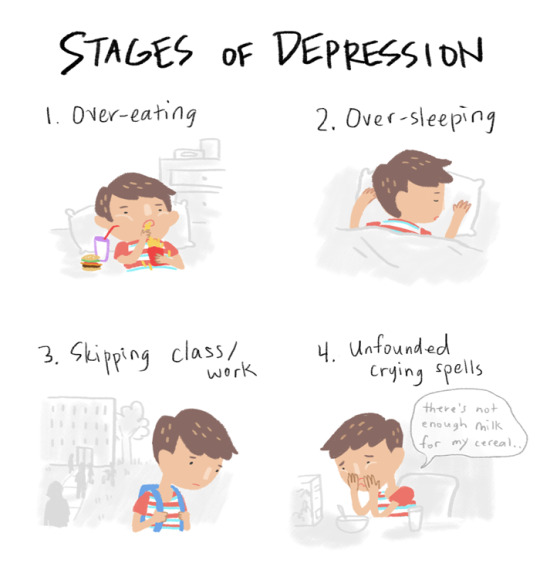

793K notes
·
View notes
Video
vine
I wish I could live inside this 5 seconds for the rest of my life
464K notes
·
View notes


